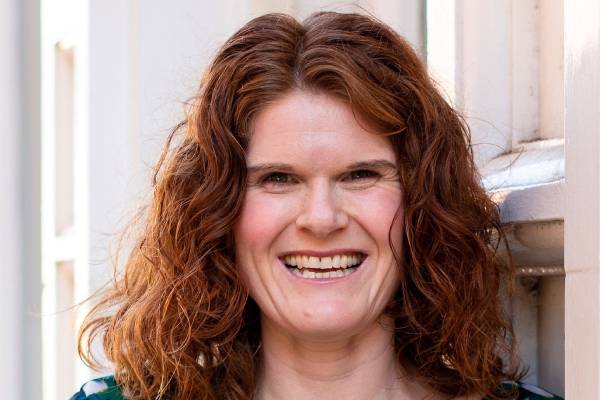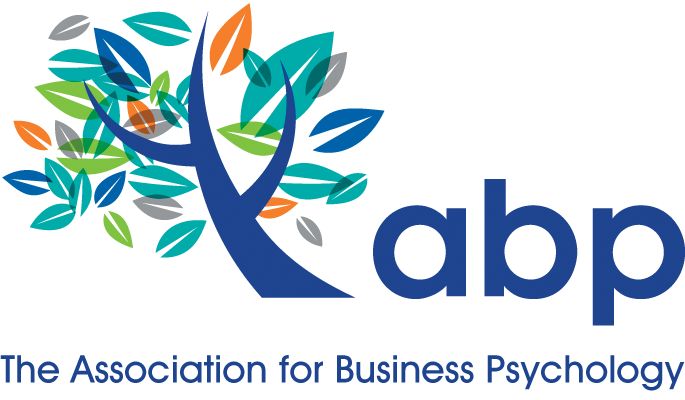Authored by Certified Business Psychologist Laura Howard. Certified Business Psychologist, Laura Howard, reflects on the webinar she recently delivered to ABP members. Below she outlines the main findings of her published research uncovering systematic barriers women face when being authentic as leaders. Importantly, she gives…

‘Reflections from an ardent learner’
Author: Stephanie Toull (Talent Development Executive)
Whether you trained to become a Business Psychologist immediately after completing your bachelors, or retrained after a lengthy career, it is essential that you invest your time in continuing to learn and develop your professional skills.
Continuous Professional Development (CPD) is described by the CIPD (2020) as “a combination of approaches, ideas and techniques that will help you manage your own learning and growth.” CPD ensures that you keep up to date with the latest research and organisational trends. It enables you to continue to make meaningful contributions to your team and organisation and helps to keep you engaged and enthusiastic about the discipline. CPD is a career-long obligation. So, whilst this is not currently a priority for many of you who are about to finish your academic courses and start the dreaded job search – the earlier in your career you begin active CPD, the easier it will become.
However, it is not always easy to undertake CPD. As well as finding the time, it can be difficult to know exactly how to begin and what you should do. In order to combat this the CIPD have proposed a 6-stage cycle:
|
1. Identify: Understand where you’ve come from, where you are and where you want to be. Plan how you can get to where you want to be, with clear outcomes and milestones to track progress. 2. Act: Act upon your plan and be open to learning experiences. 3. Reflect: Make the most of your day-to-day learning by routinely reflecting upon experience. 4. Apply: Create opportunities where you can translate theory into practice and put your learning to work. 5. Share: Share your learning in communities of practice to generate greater insight and benefit from the support of your community. 6. Impact: Measure the overall impact your learning has had on the work you do. CIPD (2020) |
When considering your professional development, it is important to consider the various ways in which you can learn – it’s not always about classroom training! As you begin your career as a Business Psychologist there is no doubt you will experience a steep learning curve. However, it is important that you have a structured focus over your learning – you can’t learn everything at the same time. Here’s what I have found has facilitated my learning so far:
Online Learning Platforms
One way is to source accessible learning platforms. For instance, LinkedIn Learning provides a huge range of options where you can undertake cross-discipline courses that are business, creative or technology focused in areas such as leadership, data science and web design. Many universities provide free access, so it’s worth enquiring as well as finding out what other online resources you can take advantage of – whether campus related or external.
Click here to find out more about the courses available on LinkedIn Learning.
Professional Groups
There are numerous public and private, commercial, not-for-profit and charitable organisations which offer CPD opportunities. As a starting point, professional bodies such as the ABP, the British Psychological Society (BPS), and the Society of Industrial & Organizational Psychology (SIOP) offer various ways in which you can continue your professional development within the business psychology space. The ABP has recently developed the Business Psychology Certificate and provides an array of training courses. For more details visit https://theabp.org.uk/
Conferences
Carefully selected professional F2F events are another great place to enhance your knowledge, skills and networks. Since graduating, I have been fortunate enough to attend many insightful conferences including the Women of Silicon Roundabout, ChangeBoard, and more recently the BPS Division of Occupational Psychology (DOP) Annual Conference held in Stratford Upon Avon.
The 2020 DOP Conference was particularly interesting as it gave me the opportunity to hear from some of the best Business and Occupational Psychologists in the world. Keynote speakers included Professor Frederik Anseel (King’s College London), Professor Gillian Symon (Royal Holloway, University of London), Professor Brian Nosek (Center for Open Science), Professor Gabriele Oettingen (New York University), Professor Mark van Vugt (Vrije Universiteit Amsterdam). They spoke on topics ranging from organisational behaviour, positive thinking, performance management, wishes, meaningful work, evolutionary mismatch to culture change, and many more.
Overall, I always enjoy attending Conferences. Undeniably, I found the DOP Conference fascinating as the sessions were more specifically focused on the work that Business and Occupational Psychologists do. Sometimes, I have found sessions at other conferences are aimed at a much broader audience and so the content may seem less relevant. Yet with careful selection, there is a lot you can learn by combining knowledge from other disciplines.
Top Tips for Attending Conferences
- Read the Conference Programme before you arrive: Larger conferences tend to have many ‘tracks’ (a stream of sessions focused around a particular topic) available, so it can be quite overwhelming when you’re spoilt for choice. It therefore helps to a) set clear objectives of what you want to gain from the conference, b) preview session details beforehand and c) consider what sessions are best aligned to your objectives and will help you fulfil your goals.
- Reach out to other attendees: LinkedIn is a great way to do this, just search for the Conference hashtag and you will see anyone who has mentioned the conference in their posts. At the DOP Conference they had a Networking and Support Programme whereby first-time delegates were matched up with more experienced psychologists to help them get the most out of the conference. See if other conferences you are attending offer something similar.
- Get Involved: There are normally lots of opportunities to get involved at conferences, regardless of how much experience you have. You could consider volunteering – the ABP are always on the lookout for volunteers to help at their events. Alternatively, conferences run by professional bodies often have the opportunity for students to exhibit their work. The 2020 DOP conference invited attendees to vote for the best student research. It was great to read Shelly Jacobs’ (University of Hertfordshire) work who received the most votes at the DOP Conference for her research “Investigating the Challenges of Shyness at Work”. Many professional conferences offer grads an opportunity to showcase their work, so why not leverage these platforms and raise your profile.
- Don’t forget to Network: With so many interesting sessions to attend it can be difficult to find time to network and navigate your way around a large room of people – especially for the introverts like me. However, there’s no denying this is important. Making these connections and building relationships will ensure you have a network of trusted and respected peers who you can take direction from when crafting a career path, stay up to date on latest trends and a way-in to stay informed of potential career opportunities.
Whichever way you decide to continue your professional development, the important thing is that you stay active and do something! It is your responsibility to undertake CPD not only for your own credibility, but for the credibility of our profession. The CIPD’s model has been a useful tool for me to focus my own CPD and has landed me here writing this blog post!
Have you used the CIPD Cycle before and found it helpful to focus your CPD? Do you have any suggestions on how an early career Business Psychologist could continue their professional development? Get in Touch and share your thoughts.
References
CPD (2020) The CIPD Cycle. Retrieved from: https://www.cipd.co.uk/learn/cpd/cycle



